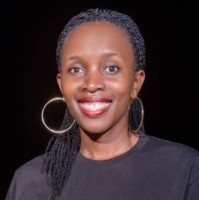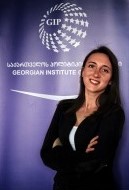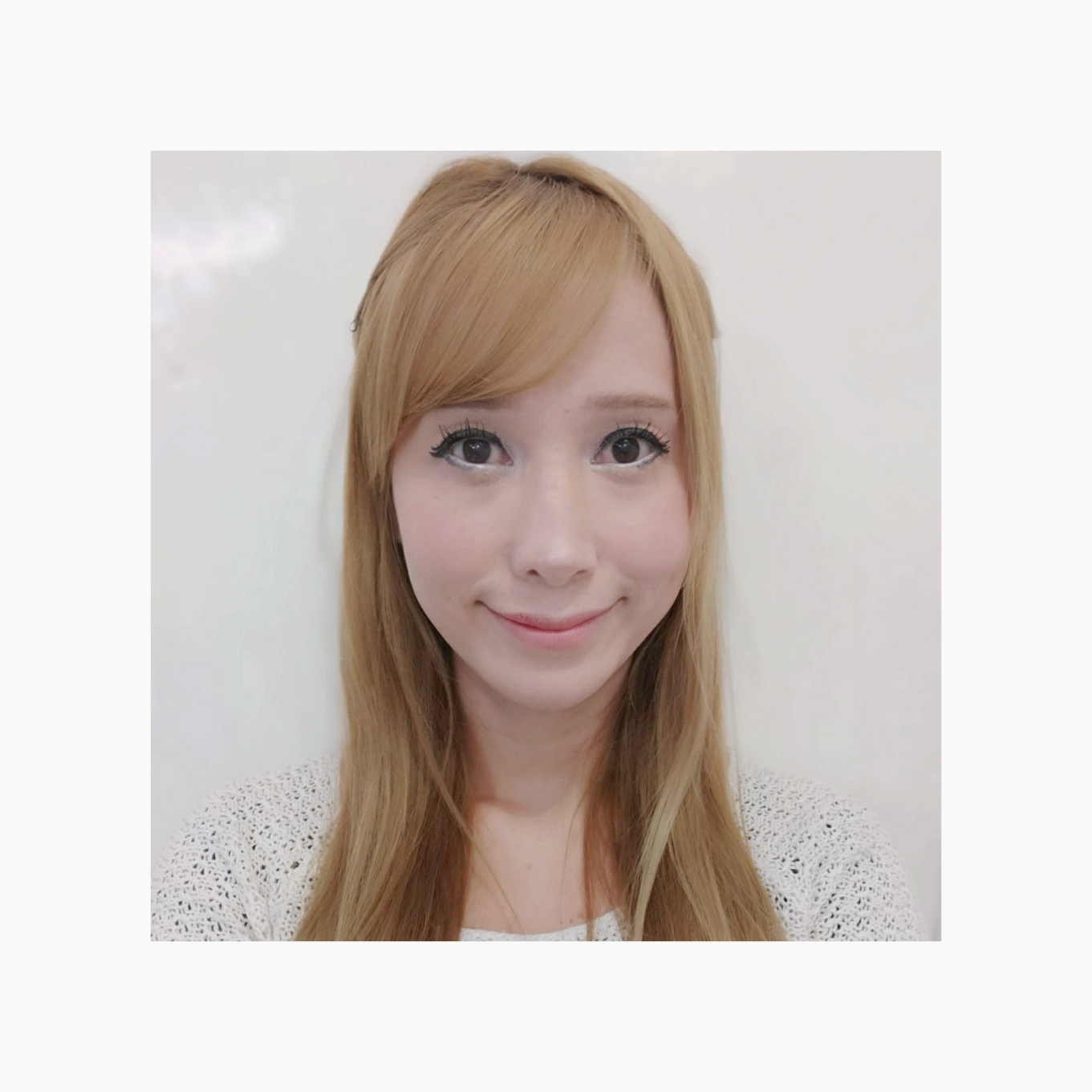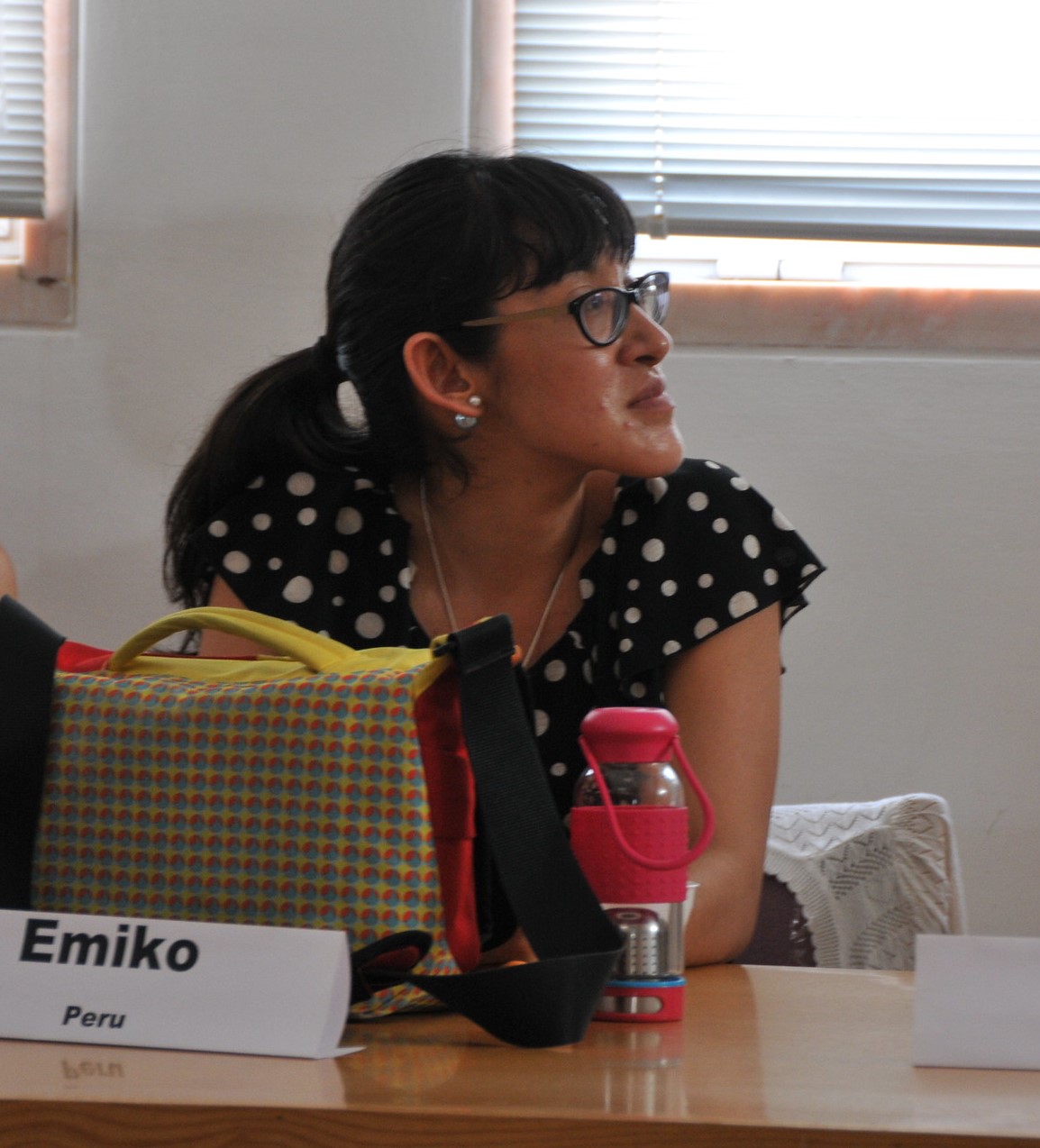You find Mfamily alumni in academia, in local and national governmental institution and NGOs and with private actors in the field of social work and social welfare. Be inspired by Mfamily career stories from Uganda, Georgia, Mexico and Sweden!
Meet Carol Lynnet Kabatanya
Carol Lynnet works to improve the lives of refugees in emergency and protracted situations.

How has your professional life evolved after graduating from the MFAMILY programme?
-The programme was fundamental in improving my competences in programme and stakeholder management. These have been essential in my current work with refugees which involves strategic planning, designing and implementation of programmes. In addition, with better research skills, I was able to publich an article in the Nordic Journal of Social Work Research: Parenting in double translation: Experiences of Ugandan Immigrants in Norway.
Where are you currently employed?
-Xavier Project (XP) Uganda.
What are the main focus area(s) of your employer?
-Xavier Project aims to pioneer innovative approaches to scaling refugee led initiatives that imrpove the lives of refugees in emergency and protracted situations. Focus is education and social enterprise, particularly by supporting the effort of refugee led community organisations to improve access to education and livelihoods among their own communities.
What is your role?
-Social Business Lead; Build networks so that refugees hosting areas can become positive contributors to the local economy at the same time as being places of protection for vulnerable populations.
Which aspects of the MFAMILY programme do you think have been the most beneficial to your career development?
-The academic content, field placement, group work, experiences of studying in different countries.
Do you have any top tips to share with future and current students?
-They should optimally utilize every opportunity that this programme presents such as meeting different people, experiencing different cultures and approaches to social work. In summary: Learn, network and have fun!
Describe in three words what MFAMILY means to you.
-Memorable, educative and fun!
Meet Nino Jibuti
Nino works to encourage leadership skills in young people between the ages of 18 - 35.

How has your professional life evolved after graduating from the MFAMILY programme?
-After finishing MA program I was facing the reality of unemployment as my fellow Mfamily graduates and it took me little over a month to find the job that I wanted.
Where are you currently employed?
-I am working for Georgian Institute of Politics (GIP) running one of the USAID funded programs.
What are the main focus area(s) of your employer?
-GIP is a think tank that works on different issues related to democratization, current political and economic issues. This particular project is focused on developing leadership skills of young people between the ages 18-35, encourage their civic engagement in social and political matters.
What is your role?
-I am coordinating the whole program, which includes different tasks:
Information meetings in regions
Hiring coordinators
Working on the content and developing the porgram
Which aspects of the MFAMILY programme do you think have been the most beneficial to your career development?
-Contacts and life experience, and being more resilient.
Do you have any top tips to share with future and current students?
-I would suggest current and future students to keep applying everywhere they imagine they want to work and just don’t give up. It has not been very smooth transition for me and I am sure lots of Mfamily graduates can relate to my story. One thing I felt Mfamily program did not help us much with was the career planning.
Describe in three words what MFAMILY means to you
-Development, contacts, confidence.
Meet Mayra Carolina Lemus Way
After 5 months of volunteering, Mayra Carolina secured a job with the International Organization for Migration.

How has your professional life evolved after graduating from the MFAMILY programme?
-After graduating from Mfamily, my professional life progressed towards amazing paths. After two years of living abroad I came back to my country of origin, Mexico. At the beginning it was hard to find meaningful jobs that matched my aspirations and skills, so I started volunteering at a nursing home, where I learned about older adults’ needs and strengths. I did this while waiting for a good job opportunity (5 months) and it was an amazing experience.
Where are you currently employed?
-I work at the International Organization for Migration, the United Nations migration agency, in Mexico City.
What are the main focus area(s) of your employer?
-Advance the understanding about migration, encourage social and economic growth through migration and uphold the human dignity and well-being of migrants.
What is your role?
-I am a reporting and monitoring assistant. I oversee data collection, data quality verification and write narrative reports for donors, governmental institutions and other United Nations agencies. I will also develop project proposals aimed at promoting migrants’ wellbeing and respect for their human rights.
Which aspects of the MFAMILY programme do you think have been the most beneficial to your career development?
-Scientific writing skills, teamwork, knowledge about protection measures for populations in conditions of vulnerability.
Do you have any top tips to share with future and current students?
-Enjoy your master studies. Work on a thesis topic that inspires you! After graduating, be patient while looking for a job, it’ll probably take some time so keep yourself busy with activities that can enrich your CV even more. For example, write some articles, do some volunteering, participate in projects, freelance supervising theses, you name it!
Describe in three words what MFAMILY means to you.
-Growth, knowledge, life-changing.
Meet Emiko Matsuo
Emiko works for a government agency with therapeutic interventions to improve family relationships.

How has your professional life evolved after graduating from the MFAMILY programme?
-After graduation I worked for a year as a youth worker in a closed placement for girls with multiple issues (drug use, criminal behavior, self-harm, lack of school attendance) called Statens Intitutionstyrelse Långanäs. I supported them in their daily activities and wrote observations for their psychosocial assessment. I then worked as an assessment social worker in Vårljus familjecentrum, an institutional placement for families with complex needs referred to by social services. I did psychosocial parenting assessments throughout the families’ placement and wrote reports of observations and recommendations for social services at the end of the placement.
Where are you currently employed?
-In the “Family team” in Huddinge kommun family services.
What are the main focus area(s) of your employer?
-My employer is a local government agency responsible for family services (child protection) in the municipality. The main focus is on improving parenting capacity of families with complex needs, promoting respect for children’s rights and preventing out of home care placements in social services.
What is your role?
-I am employed now as a family intervention practitioner in Huddinge kommun family services, where I offer a voluntary service with therapeutic interventions to improve family relationships.
Which aspects of the MFAMILY programme do you think have been the most beneficial to your career development?
-Knowledge about services working with children’s rights in practice, comparative knowledge of child protection vs. family support systems across the world.
Do you have any top tips to share with future and current students?
-Get in contact and volunteer in your field of interest to make contacts if you can and keep informed about the latest developments in your field of interest through literature.
Describe in three words what MFAMILY means to you.
-Interconnectedness, discovery, opportunity.